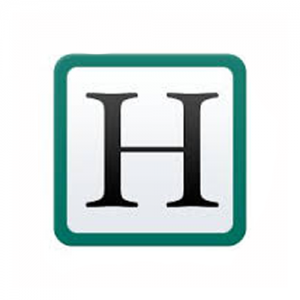
On May 2, 2010 MoveOn.org launched its “most important campaign ever,” an effort to “end the stranglehold that big corporations and lobbyists have on our government.” MoveOn.org seeks nothing less than to “fix our democracy and put We the People back in charge.”
The MoveOn.org “launch,” while joining the growing chorus of those who are speaking out against the way the political process is working, ignores a critical factor that is both cause and effect of public disaffection with politics: the growth of the independent movement.
More than 40 percent of Americans now self-identify as independents. And for 15 years, the independent movement’s progressive wing – IndependentVoting.org — has mobilized independents for structural reforms that give voters as much power as the parties. For independents, it is the parties — who are hardwired to big corporations, big money, and special interests — that control government policy. Both parties use populist rhetoric when it suits them, but the hardwiring persists, no matter the message. If we want to “put people in charge,” we have to break down the institutional control maintained by the parties.
But for MoveOn.org, independents don’t seem to exist. Their strategy has been (and remains) to mobilize the most left leaning elements of the Democratic Party base. This is not, by the way, the strategy that brought Barack Obama to the White House. Independent voters propelled a new majority coalition, a coalition of African Americans, anti-establishment Democrats (including anti-the Democratic Party establishment) and independents. And open primaries and caucuses in the 33 states that permitted independents to vote were the key to Obama’s success in toppling the Democratic Party establishment.
This may not be a coalition that MoveOn.org feels entirely comfortable with, not least because the progressive wing of the independent movement, which is anti-party, feels there is a special problem with the Democratic Party. It rails at the corporations and portrays itself as the party of the people, but clings to partisan and exclusionary notions of democracy and governance. If MoveOn.org is serious about revitalizing our democracy it can go beyond jeremiads against “big money” and “evil corporations,” and join with us to support structural changes that bring our electoral system in line with where the American people are already at. This means giving up any kind of strategic bottom line of protecting the hegemony of the Democratic Party within progressive politics. MoveOn.org’s base is much more independent than its leadership, in this regard.
Right now millions of Americans — some 40 percent of the voting population — self identify as independents. And millions of independents are disenfranchised by not having the right to vote in primary elections where the candidates we choose from in November are selected. For example, in California there are 3.4 million “decline to state” voters who cannot participate in primary elections unless a party specifically invites them in.
On June 8th California voters will go to the polls to vote on Proposition 14. If adopted, Prop. 14 would replace party primaries with a system in which all voters, regardless of party affiliation or non-affiliation, vote in a first round where all candidates appear on one ballot with their party preference listed next to their name, if they wish. The top two vote-getters go on to the general election ballot. This form of open primary makes it possible to build an Obama-style coalition that can win. Think what it would mean for MoveOn.org to urge its followers to vote yes on Prop. 14. We the People would be taking charge by voting to fully enfranchise 3.4 million voters.
In addition to open primaries, other structural changes sought by America’s growing independent plurality are: nonpartisan administration of elections; nonpartisan redistricting; same day voter registration. The solution to the crisis in our democracy can only be more democracy.
The biggest impediment to the advancement of democracy in our country is the two major parties. By blocking efforts at structural change they seek to perpetuate (and in some cases reinforce!) a system in which smaller and smaller numbers of people — the most ideologically committed party activists — determine who we can elect to office and how and whether legislation is considered from Washington to City Hall.
MoveOn.org might feel that arrangement enhances its capacity to shape the outcome of elections, because highly mobilized groups can have outsized impact in a smaller universe. In this regard, MoveOn.org has more in common with the Republican-allied Tea Party movement than they’d like to admit. Each one is tethered to a major party, while attempting to influence its direction. But that strategy, whether employed from the “left” or from the “right,” can intensify partisan battles and drive more and more Americans out of a political system in which they have no power. That does not put the people in charge. It relegates them to the margins.
Therefore, we, the undersigned, invite MoveOn.org to “move in” with the progressive wing of the independent movement. Together we can fix our democracy by backing the structural political reforms which give power to the people, not to the parties.
______________
Jackie Salit is President of IndependentVoting.org, a national association of independents with organization in 40 states.
Harry Kresky is the country’s leading legal advocate for independent voters. He currently represents independent voters in Idaho in federal litigation regarding open primaries.
Jason Olson is the Director of IndependentVoice.org, a California based organization of independents representing the state’s 3.4 million “decline to state” voters.